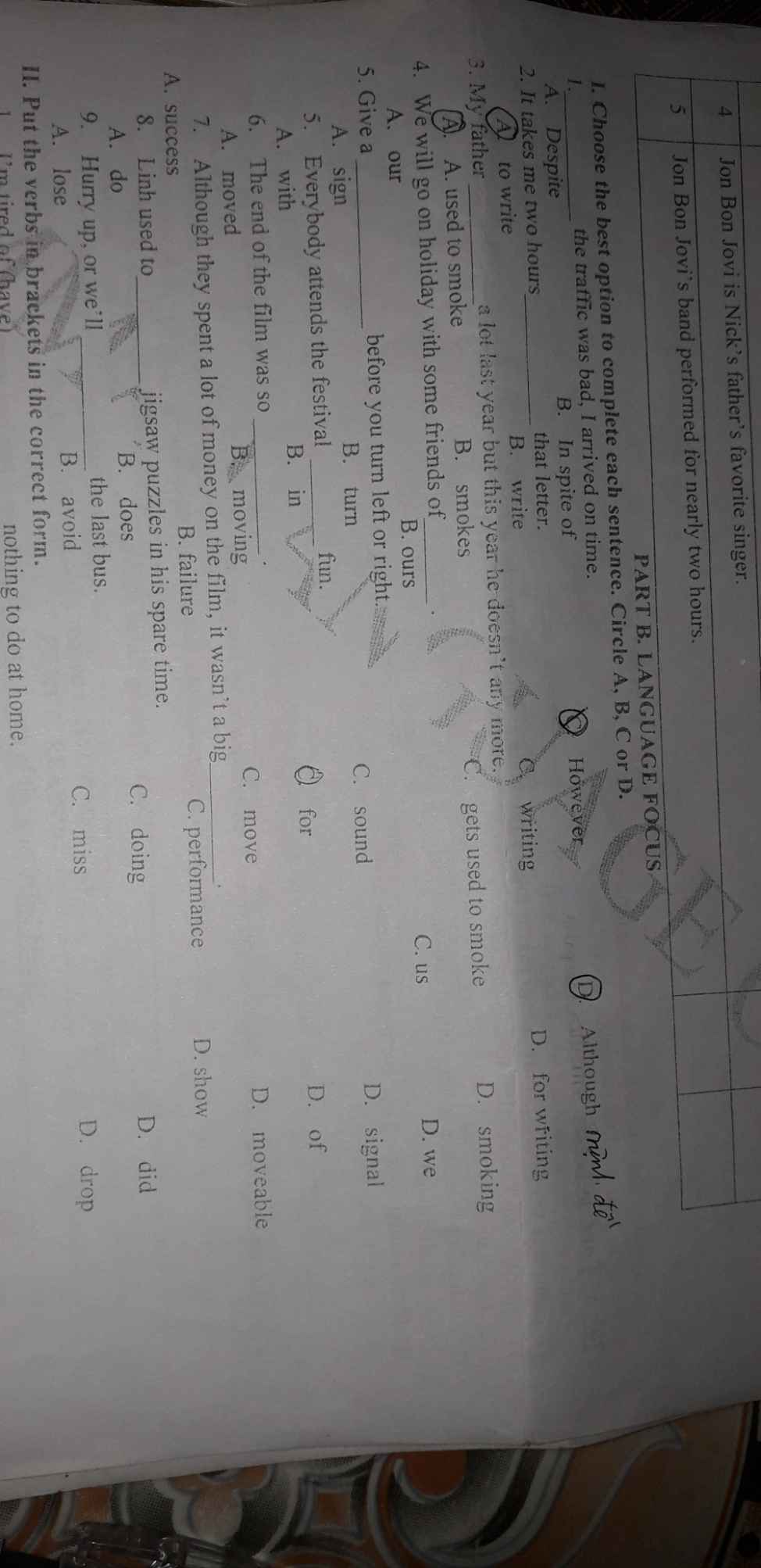Hãy nhập câu hỏi của bạn vào đây, nếu là tài khoản VIP, bạn sẽ được ưu tiên trả lời.

We will replace/ will be replacing out halogen bulbs with LED bulbs to save energy.
What will happen/ will be happening when we run out of non – renewable resources?
Promise me you won’t call/ won’t be calling before 10; I hate being woken up early!

IV. Underlined the correct form, future simple or future continuous.
1. At the same time next year, I will study/ will be studying Chemistry at Oxford University.
2. We will replace/ will be replacing out halogen bulbs with LED bulbs to save energy.
3. In the future, cars won’t use/ won’t be using petrol or diesel, but other fuels like electricity and natural gas.
4. Jane won’t be here this time tomorrow. She will attend/ will be attending the Conference on Green Energy.
5. What will happened/ will be happening when we run out of non – renewable resources?
6. Promise me you won’t call/ won’t be calling before
10; I hate being woken up early! 7. You can’t meet me at the supermarket. I won’t shop/ won’t be shopping in the afternoon.
8. I think scientist will find/ will be finding a solution to global warming soon.
9. You are so late! Everybody will work/ will be working when you arrive at the office.
10. Will solar energy replace/ will solar energy be replacing fossil fuels within 20 years?

1. At the same time next year, I will study/ will be studying Chemistry at Oxford University.
2. We will replace/ will be replacing out halogen bulbs with LED bulbs to save energy.
3. In the future, cars won’t use/ won’t be using petrol or diesel, but other fuels like electricity and natural gas.
4. Jane won’t be here this time tomorrow. She will attend/ will be attending the Conference on Green Energy.
5. What will happened/ will be happening when we run out of non – renewable resources?
6. Promise me you won’t call/ won’t be calling before 10; I hate being woken up early!
7. You can’t meet me at the supermarket. I won’t shop/ won’t be shopping in the afternoon.
8. I think scientists will find/ will be finding a solution to global warming soon.
9. You are so late! Everybody will work/ will be working when you arrive at the office.
10. Will solar energy replace/ Will solar energy be replacing fossil fuels within 20 years?

b.is standing vì chia ở hiện tại đơn vì diễn tả sự việc mà người taị đang nói hoặc nhìn thấy

Identify a mistake in each sentence and correct it :
1. Next week new glass will be installing in the windows to stop heat escaping .
will be installing -> will be installed
2. At this time in next two month , we are going to have a free solar panel .
are going to have -> will be having
3. They will be organized a workshop about clean and safe energy sources next Wednesday
Organized -> organizing
4. We will be replacing coal and natural gas for heating by solar energy at the end of next year .
Replacing -> replaced
5. Our house will provide with biogas and low energy light bulbs next month.
Provide -> be provided

1. In Western countries, energy is cheap. F
2. Consumers can save money by using energy-saving bulbs. T
3. Labeling scheme is a good innovation which helps the European to save money and natural resources. T
4. Ordinary 100-watt light bulbs use a quarter of the electricity of standard bulbs. T
5. North American and European countries are interested in saving money and natural resources. T

will replace
Will Replace